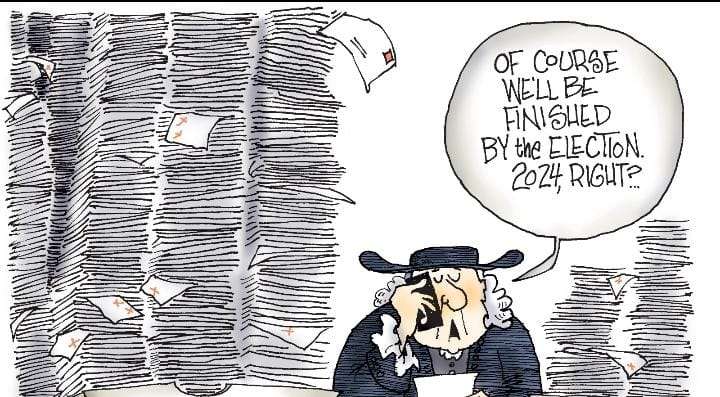
The constitutional stipulation of a 90 day timeframe constitutes the outer limit for this process. The presidential proclamation was expected to specify the date for general elections, thus averting delays. The constitution envisions the exercise of authority through elected representatives, underscoring the importance of elections taking place within 90 days. The phrase ‘not later than’ effectively imposes a constraint on this power.
The stance adopted by the ECP rests on a flawed interpretation of the constitution. The president, as the head of state and a symbol of unity, wields constitutional powers and executive authority on behalf of the federation. Article 219 constrains the ECP’s responsibilities to “holding” and “organizing and conducting” elections. The ECP’s chief ought not to have declined a meeting with the president. Article 224, both in its original form and as amended, mandates elections within 90 days in the event of assembly dissolution. Any effort to attribute the power to set election dates to Section 57 of the Election Act, 2017 is patently unlawful and unconstitutional if interpreted as granting the ECP authority over general election scheduling.
The records of political and constitutional history in Pakistan are replete with instances of constitution abrogation and suspension. For the average citizen, the constitution and its associated legal norms often appear devoid of tangible meaning. However, the constitution remains the sole bulwark and cohesive force in a nascent federation grappling with divisions and polarization. Elaborate interpretations of the constitution in lengthy judicial discourses might resemble attempts to embellish marginal notes, with little substantive effect. A more reverential treatment of the constitution akin to a sacred text is warranted.
In this context, the discourse surrounding the establishment of a fixed date for general elections to national and provincial assemblies demands scrutiny. The interim government has yet to adopt a definitive stance on this issue. The Election Commission of Pakistan (ECP), in response to the president’s inquiry, appears resolute in asserting its authority to determine election dates. The ECP maintains that the time limit stipulated in the constitution is not sacrosanct. This view aligns with the prevailing position endorsed by major political parties, which have avoided elections for the past year, citing political expediency.
While two provincial assemblies were dissolved, the respective governors failed to designate election dates. This quandary culminated in a legal imbroglio, as disagreements among the governing bodies led to the matter being lost in bureaucratic labyrinth. The Supreme Court’s clear directives notwithstanding, the PDM government and its appointed governors wilfully disregarded implementation. Notably, the ECP, an institution constitutionally entrusted with organizing elections, joined forces with the former federal government, straying from its constitutional mandate without facing repercussions. Interim governments installed in the provinces were permitted to exceed the 90-day limit.
The tenure of the preceding National Assembly was slated to conclude on August 12, 2023. However, Prime Minister Shehbaz Sharif, seemingly motivated by political advantage, invoked Article 58(1) of the constitution on August 9, 2023, urging the president to dissolve the National Assembly. Consequently, the dissolution was executed on August 9, 2023.
Election delays occurred with no apparent rationale after the enactment of the 1956 constitution. The mandate of the majority was disregarded in 1970. Subsequent to 1985, almost every election has been marred by disputes. Pakistan’s progress and prosperity hinge on stability and peace. Ultimately, the populace stands as the ultimate arbiters of their leaders, given they are permitted to elect or reject them through the ballot. Timely and transparent elections are imperative for this purpose.

